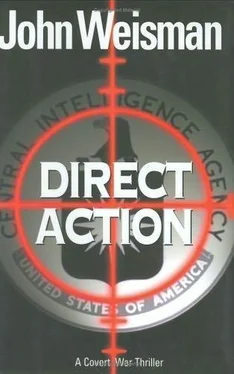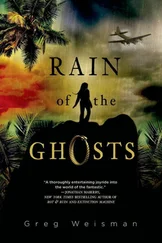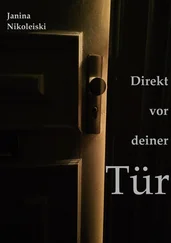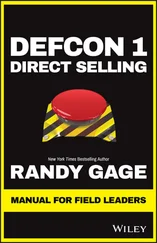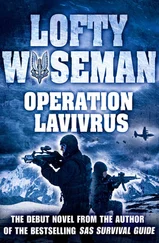“Reinforcements.” Even so, the Israeli moved behind the Mercedes and Tom noticed that he’d picked up the black satchel and thrown it over his shoulder, and that his hand was inside the bag-probably holding the submachine gun.
A graphite-gray Citroën saloon with opaquely tinted windows eased into the garage. The heavy door dropped as soon as the car cleared the threshold.
Tom squinted, trying to see through the dark glass. The driver was uniformed-a chauffeur. Then he saw Salah pull himself out of the front seat of the car.
The Israeli smiled-obviously delighted-when he saw Tom. He gestured graciously with his good arm. “Salaam wallahkum, Tom,” he said in Arabic. “I am glad Reuven brought you. As it is written in the Koran, ‘God will bless the true believers.’”
Tom didn’t feel like a true anything.
“Salah,” he said. “What’s this all about?”
“ Tawil balak -give it time.” The little man rushed past him and scampered behind the Mercedes, where he drew Reuven off to the side.
The trunk of the Citroën popped open. Then Salah’s driver stepped out of the big car. It was Milo. “Good evening,” he said to Tom.
Milo removed his chauffeur’s cap and laid it on top of the dash. “You will excuse me?”
The Corsican walked to the rear, extracted a big screwdriver and two white-and-black diplomatic license plates from the trunk, exchanged the car’s plates, and dropped the old ones into a garbage container. He pulled a pair of heavyweight black nylon satchels out of the Citroën’s trunk and set them on the garage floor. Then he walked to where Salah and Reuven were speaking and interrupted them long enough to ask a quick question.
Tom saw Reuven nod and toss Milo something from the bag that still hung from his shoulder. Then Milo went over to where Hamzi lay, rebound the Moroccan’s arms and legs, taped his mouth, then flipped him up onto his shoulder, carried him to the Citroën, eased him into the vehicle’s trunk, slammed the lid shut, and double-locked it.
Tom watched as Milo retrieved his chauffeur’s cap. “Where’s he going? Back to our warehouse?”
“For a few hours,” Salah said. “Your boss wants to know about several matters. And there are a few loose ends we’d like to tie up on our end.”
“And then?”
“And then? We’ll drop him off at the Moroccan embassy. The Mukhabarat will want to talk to Monsieur Hamzi, even though he hasn’t been to Morocco in years himself. We’ve alerted them to his…connections.”
“Rabat.” Milo smiled. “King Mohamad-he pay good, you know, right, Reuven?”
Tom was listening just hard enough to hear the sound of the second shoe dropping. He looked at Salah, then at Reuven, then back at Salah. “You’re retired, aren’t you?”
“Sometimes,” Salah said obliquely. “I work on contract basis for my old employers. Sometimes Reuven and I and some others do projects together. Like your 4627 Company.” He smiled slyly at Tom’s reaction. “What-you think CIA is the only agency that has to farm out what it can’t do itself?”
Reuven walked up. “Money, money, money is all these guys ever talk about. Nothing but the bottom line.” He tapped Milo’s chest. “Did you find me one?”
Milo said, “Yes, but there’s no time to make it work.”
“Just put it in,” Reuven said. “It doesn’t have to move.”
“It? What?” Tom looked at Milo, confused.
“New window,” Reuven said, jerking a thumb at Hamzi’s Mercedes as Milo put on a pair of work gloves and eased a curved piece of auto glass out of the rear of the Citroën. “Car needs a new window.”
The Israeli looked at Tom. “Salah brought you a change of clothes,” he said, switching into English. “And something for your head. But before that, we have to deal with the olive barrels. I don’t want to risk the explosive falling into the wrong hands.”
11:34P.M. The trousers were about two inches too short for the Israeli and the waist was at least three inches too big. But at any distance more than six feet away, even in daylight, Tom had to admit Reuven Ayalon would pass for Yahia Hamzi’s twin.
That was because the Israeli understood two of the basic principles of disguise. First, he understood that the object of disguise is to play a trompe l’oeil with the mind of the observer by allowing the observer’s mind to
think it sees what it is seeing. Reuven had studied enough psychology to understand that the human mind views the world in patterns; patterns that allow every one of us to make the scores of intuitive shortcuts we make on a daily basis. These patterns are because one particular memory section of the brain has the ability to draw a firm conclusion based on experience and patterns without having to go through endless comparisons. Thus, when someone is asked to identify a photograph of a mustached man in a bowler hat and striped baggy trousers who is holding a cane, the brain skips the intermediate steps of trying to identify every single person with a mustache we’ve ever seen because the memory section remembers watching The Gold Rush and tells the mouth to say “Charlie Chaplin.”
Why? Because that’s the pattern the mind has been programmed to accept. The pattern is preconditioned by prior experience, prior exposure.
Reuven understood that if a disguise reinforces the key elements of appearance, it will fool the brain into jumping to the right-which will be the wrong-conclusion. Two and two will equal four. In Hamzi’s case, the key elements were the Moroccan’s curly, pseudo-Afro hairstyle, his heavy-framed, rose-tinted eyeglasses, and his habitual light-colored suit. All three of those elements had stuck, Tom remembered, in Dianne Lamb’s memory.
So even if Reuven was a few centimeters taller than Hamzi and twelve kilos lighter, if he built his disguise around that basic trio of key elements, the brains of anyone who knew Hamzi would instantaneously fill in the blanks and send the Yahia Hamzi recognition signal into that person’s consciousness.
Second, Reuven understood the quacks-like-a-duck rule. If he looked like Yahia Hamzi, and he drove Yahia Hamzi’s car, and he was schlepping barrels of Yahia Hamzi’s Boissons Maghreb olives, then he had to be- quack-quack -Yahia Hamzi.
Tom watched as the Israeli squatted and arranged the hairpiece’s ringlets in the Citroën’s rearview mirror. Then Reuven stood up and theatrically whipped Hamzi’s overcoat around his shoulders just the way the Moroccan did. Reuven struck a pose. “Not bad for quick-and-dirty, eh?”
He pulled two pairs of flesh-colored latex gloves out of the satchel Milo had brought, pulled one pair on, and handed the other to Tom. “You’ll need these.” Reuven put two fingers into his mouth and gave a shrill whistle. “Time to move, boys.”
11 NOVEMBER 2003
12:09 A . M .
RUE LAMBERT
REUVEN PULLED THE MERCEDESup onto the curb in front of L’Étrier. The bistro was shut down for the night. The street was empty-no watchers visible, although both men understood they were probably being surveilled. The Israeli switched the headlights off and popped the trunk. He swiveled toward Tom and spoke in soft French. “You remember the number?”
“Three zero six seven nine.”
“Justement.” He cracked his door, turned to Tom, and snapped his fingers. “Nazuz, habibi.”
Tom nodded and exited, went to the rear of the car, which was directly opposite the front door of the safe-house building, undid the bungee cord, retrieved two of the blue plastic barrels, and hefted them into his arms. They were cumbersome, not to mention the fact that they weighed fifteen kilos each. Salah had given Tom a short black leather jacket, a black mock T-neck sweater, a pair of dark trousers that almost fit around the waist, and a light prosthetic that altered Tom’s appearance and hairstyle. Since it was one of those one-size-fits-all apparatuses, Tom felt conspicuous wearing it. But Reuven had insisted.
Читать дальше
